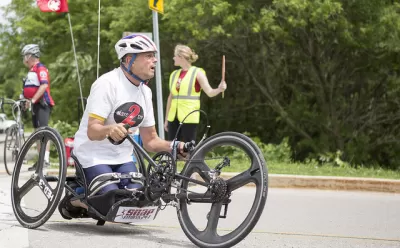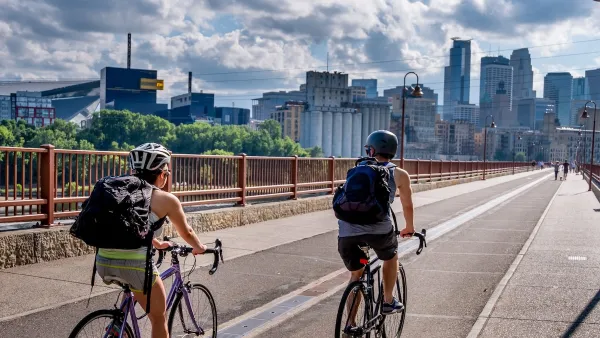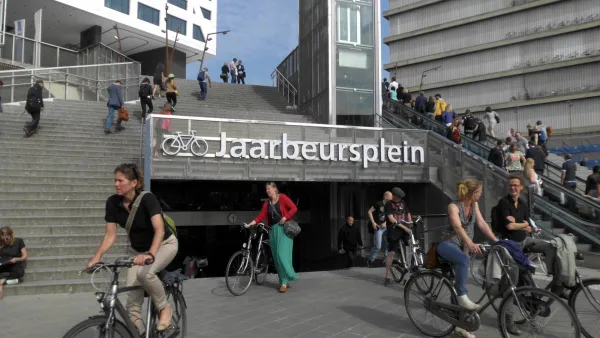In the U.K. university town of Cambridge, more than a quarter of disabled commuters travel by bike.

For many disabled people, biking can be easier than walking because it lacks some of the joint stress associated with taking steps, but when transit infrastructure is only built for the able-bodied, disabled commuters find it difficult to take advantage of their biking abilities. "Part of the problem is that most urban infrastructure is built by able-bodied engineers, who may not realise that bollards, speed bumps, kerbs and steps can be insurmountable for disabled cyclists," Laura Laker reports for The Guardian.
Cambridge demonstrates what is possible for this community, there, 26% of disabled commuters ride a bike, a huge percentage considering this number is .2% in some less cycling-friendly cities.
"In the context of an ageing global population, mobility experts are increasingly seeing cycling as a way to help people with disabilities move around cities independently," Laker reports. The health benefits of biking could have huge implications for people with disabilities. "Active travel can tackle inactivity, isolation, mental health issues and reliance on expensive private transportation such as taxis; yet disabled people are more likely to be inactive than non-disabled people (37.8% in Britain compared with 18.2%, according to Public Health England)," Laker writes.
FULL STORY: 'A rolling walking stick': why do so many disabled people cycle in Cambridge?

Maui's Vacation Rental Debate Turns Ugly
Verbal attacks, misinformation campaigns and fistfights plague a high-stakes debate to convert thousands of vacation rentals into long-term housing.

Planetizen Federal Action Tracker
A weekly monitor of how Trump’s orders and actions are impacting planners and planning in America.

In Urban Planning, AI Prompting Could be the New Design Thinking
Creativity has long been key to great urban design. What if we see AI as our new creative partner?

King County Supportive Housing Program Offers Hope for Unhoused Residents
The county is taking a ‘Housing First’ approach that prioritizes getting people into housing, then offering wraparound supportive services.

Researchers Use AI to Get Clearer Picture of US Housing
Analysts are using artificial intelligence to supercharge their research by allowing them to comb through data faster. Though these AI tools can be error prone, they save time and housing researchers are optimistic about the future.

Making Shared Micromobility More Inclusive
Cities and shared mobility system operators can do more to include people with disabilities in planning and operations, per a new report.
Urban Design for Planners 1: Software Tools
This six-course series explores essential urban design concepts using open source software and equips planners with the tools they need to participate fully in the urban design process.
Planning for Universal Design
Learn the tools for implementing Universal Design in planning regulations.
planning NEXT
Appalachian Highlands Housing Partners
Mpact (founded as Rail~Volution)
City of Camden Redevelopment Agency
City of Astoria
City of Portland
City of Laramie





























